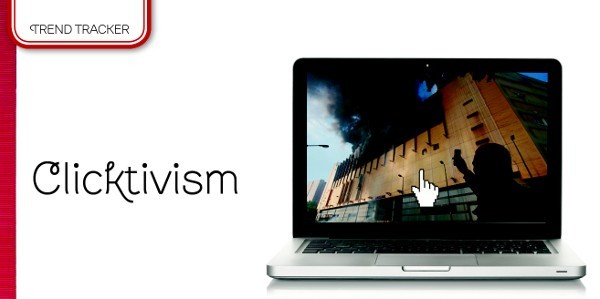Andy Kenworthy considers the explosion of online activism and wonders if the revolution is just a mouse click away?
Andy Kenworthy considers the explosion of online activism and wonders if the revolution is just a mouse click away?
The cheerleaders of social networking say it is transforming world politics and hotwiring revolutions all over the globe. But are we really making change, or just talking about it?
From uprisings across the Middle East to workers’ demonstrations in Europe, smartphone-wielding activists are tweeting tactics, friending Facebook fans to their cause, and instantly posting their exploits on YouTube. All the while, WikiLeaks publishes classified documents exposing government hypocrisy, collusion and criminal behaviour by the powerful.
And in four short years since its launch in 2007, online campaigning community www.avaaz.org has collected more than eight million members worldwide, and is still gaining them at the rate of about 100,000 a week.
Organisations that have been in the positive change game for a while longer are also gearing up their own social media contributions to take advantage of the trend. For Greenpeace New Zealand, it has now become a major tool for their work – alongside the inflatable boats and climbing harnesses.
Web manager Nick Young tells me: “We have been doing online campaigning for more than a decade, but the rate of change in the last two or three years has been extraordinary. The value of it for us is that we can communicate with a lot of people quickly and effectively. And with social networking happening peer-to- peer, we don’t just reach our supporters, we can reach their friends and connections, creating a real ripple effect.”
In New Zealand this helped create a groundswell of opposition to mining conservation land, while Nestlé felt the wrath of social networkers worldwide when it acted to censor Greenpeace’s attack on its use of rainforest palm oil.
But enthusiasm for digital people-power is not universal, and the online revolutionaries are not unopposed. Government agencies and corporations are developing more sophisticated means of closing down or distracting would-be online revolutionaries. ‘Astroturfing’ is just one method. This involves corporations or government agencies setting up fake advocacy groups that actually support their agendas, or masquerading as ‘ordinary’ people putting forward their views in online blogs and forums.
Another concern is that this may all be just a phoney war whose real casualty is genuine flesh and blood activism. Writing in The Guardian, veteran activist Micah White said: “… to inflate participation rates, these organisations increasingly ask less and less of their members. The end result is the degradation of activism into a series of petition drives that capitalise on current events. Political engagement becomes a matter of clicking a few links. In promoting the illusion that surfing the web can change the world, clicktivism is to activism as McDonald’s is to a slow-cooked meal. It may look like food, but the life-giving nutrients are long gone.”
It is true that, for all its bluster, it is difficult to pin down exactly what effect a group like Avaaz has had. Even if the desired change occurs, is it because of Avaaz, or not?
Online activism seems to motivate the ‘Me’ generation more than the rigours of old-fashioned Marxism or other political groups, but so far it lacks a shared belief system or even a clear set of objectives. People just turn up when they feel like it, or not when they don’t.
There is another side to clicktivism, however, where you can make change without donning a balaclava. You can provide micro-loans to folk in developing countries through www.kiva.org, help make your community more sustainable at www.transitiontowns.org. nz or swap homegrown food ideas at www.ooooby.ning. com. These movements are at least as important in bringing about the world we want to see as petitioning politicians and attacking corporations.
Jumping into an online cause, it would seem, is more just another tool in the hands of humanity – and less a magic wand. If, when, and how we choose to use it is still up to us.
Andy Kenworthy has tried his hand at activism both virtual and real. See page 38 for his story on child soldiers.







